每日观察:关注Facebook及Twitter移动广告收益(9.7)
1)VoucherCodes.co.uk最近调查数据显示,每9个年龄介于18-25岁的英国用户中,就有一者每天平均访问Facebook平台20次,每天在Facebook投入时间高达8小时——相当于人们一整个工作日时间。
从这一惊人数据来看,比较有可能的情况是这些用户是通过移动设备访问Facebook,因为一般Facebook用户每天在该平台投入时间仅为80分钟左右。
调查发现这些Facebook用户很在意自己的“虚拟虚荣心”,有27%用户表示,看到自己未被邀请访问其他好友所去的地方,心里会不高兴;24%用户经常为购置新衣花钱,因为担心被瞅见自己多次穿同一套衣服。
2)eMarketer最近数据预测,今年美国移动广告收益将达26亿美元。谷歌仍将占据最大移动广告销售市场份额,占比达54%;而值得注意的是,Twitter在这一方面的表现将优于Facebook,两者今年移动广告收益将分别达1.297亿美元和7270万美元。
预计到2014年,Facebook广告收益将达6.294亿美元,而Twitter则是4.44亿美元。预计2016年整个美国移动广告市场销售额将达120亿美元。
eMarketer认为Facebook在该领域表现相对弱势的主要原因是,Facebook介入这一市场的时间较晚;而谷歌及Pandora(占据8.7%的美国移动广告市场收益)表现较突出也只是因为他们占领了市场先机。
由于宽屏智能手机兴起,展示广告收益增幅达102%,增至2012年的11亿美元,富媒体广告将成为展示广告中收益最高的类型。
3)据gamasutra报道,截止8月31日,大众融资平台Kickstarter上的电子游戏及桌面游戏项目集资金额已达5000万美元(远超2011年时的360万美元),其他较为领先的类型包括电影和设计项目,这两者分别融资4200万美元和4000万美元。
Kickstarter在最近报告指出,Double Fine Adventure项目首天成功融资超过100万美元是促成这一现象的催化剂。自该项目2月份亮相以来,Kickstarter现在每月收到的游戏项目融资申请已从100个增长至200个以上。
报告还显示,那些首次资助游戏项目的赞助者,之后会比其他Kickstarter用户更积极支持多个项目。
由于Double Fine Adventure项目融资大获成功,游戏类项目现在每月可斩获700万美元资金,而在过去3年中游戏项目在该平台的融资总额也仅为400万美元。
4)游戏行业博客最近总结数据显示,DeNA旗下手机社交游戏《Blood Brothers》和《Ninja Royale》每活跃用户平均盈利(ARPDAU)为1美元(2012年8月数据);
另一款DeNA游戏《Rage of Bahamut》同一数值是0.6-1美元(2012年6月数据),由A Thinking Ape团队推出的手机游戏《Future Combat》同一数值则是0.45美元(2011年11月数据)。
社交游戏公司Kixeye旗下作品的ARPDAU则是0.8美元(2012年4月数据)。
5)据serkantoto报道,DeNA日前宣布将推出新款基于热门电子游戏《雷顿教授》的社交游戏《雷顿教授与七大幻影盗贼》,日本Mobage用户即日起就可预注册该游戏帐号,这些预注册用户将可获得特殊的限量版道具。
这是Mobage平台的第二款《雷顿教授》改编社交游戏,该题材首款社交游戏《雷顿教授Royale》于2011年6月发布,但将在今年11月30日关闭项目。
《雷顿教授与七大幻影盗贼》由DenA与该IP所有者Level-5团队共同开发,支持玩家扮演侦探角色,在伦敦追捕7大盗贼。
6)据Venturebeat报道,育碧最近公布了其最新Facebook游戏《CSI: Miami Heat Wave》的细节内容。这款角色扮演游戏取材于热门电视剧,玩家将在其中扮演一个出现在犯罪现场的侦查员新人,加入Horatio Caine的行列并寻找破案线索,审问嫌犯,建立实验室,解决迈阿密的可怕犯罪问题。
该游戏制作人Adrian Price表示,开发团队借鉴了基于该IP的首款Facebook游戏《CSI: Crime City》(游戏邦注:发布于2010年,目前有81万MAU,最高峰时期拥有35万DAU,目前DAU已降为9万)开发经验,但其故事将呈现不同的选择,使游戏更具可玩性。(本文为游戏邦/gamerboom.com编译,拒绝任何不保留版权的转载,如需转载请联系:游戏邦)
1)One in nine Brits spends eight hours a day on Facebook
by Zen Terrelonge
‘Virtual vanity’ trend supported by access from all connected devices.
Facebook has 543m mobile users, while 100m only ever access the social network via smartphones and tablets. Now, new data from VoucherCodes.co.uk suggests there’s a huge amount of mobile-based users in the UK.
One in nine Brits aged 18-25 admits to spending a massive eight hours a day on Facebook through 20 daily visits – the equivalent of an average whole working day!
Given the huge time span, it’s safe to assume most access is made on the move, as the average user spends just 80 minutes a day on the social network.
The trend of such high usage is known as ‘virtual vanity’, particularly with 38 per cent of users worrying about being tagged in a dodgy photo, which spikes to 46 per cent for girls.
Meanwhile, 27 per cent of users feel unpopular when they see they haven’t been invited to places other friends have been to, while 19 per cent embellish status updates to seem more interesting.
24 per cent even pay out for new clothes regularly, worrying they’ll be spotted wearing the same outfit twice.(source:mobile-ent)
2)U.S. Mobile Advertising: Twitter Sales Are Double That Of Facebook In A Google-Ruled, $2.6B Market
Ingrid Lunden
The researchers at eMarketer have put out their latest figures on mobile advertising revenue in the U.S., and while they are holding firm on their forecast that they will bring in $2.6 billion this year (it’s a number they actually put out in January 2012), they have drilled down a bit more into who is making what. Unsurprisingly, Google is still at the top of the pile: it will account for 56% of all mobile ad sales. Perhaps more surprisingly, Twitter is doing better than Facebook in driving revenues where mobile ads are concerned: the world’s biggest social network will make half as much as Twitter in mobile ads this year: $72.7 million versus $129.7 million, the analysts say.
However that is bound to be reversed over time: eMarketer predicts that by 2014, Facebook will be making $629.4 million in mobile ads, compared to $444 million for Twitter, putting Facebook at a distant second to Google. Longer term, eMarketer predicts that U.S. mobile advertising will generate sales of $12 billion by 2016.
Going back to 2012, the main reason for Facebook’s lower revenues at present, it seems, is the basic fact that it’s not been selling ads on mobile for as long as it has been selling them on main site, accessed via desktop PCs, or for as long as Twitter has on mobile. It was only in August, in fact, that Facebook unveiled its very first non-social mobile ad unit, an option for newsfeed ads that open iOS or Android app store purchase windows when clicked.
Indeed, eMarketer notes that part of the reason that Google, and others like Pandora (at 8.7% of all U.S. mobile ad revenues, 20.5% in display alone), are doing better is simply because they’ve been chipping away at that business for longer.
But it’s not just how long companies have been at the business of mobile ads; eMarketer also notes that some formats just seem better suited to ads than others. In particular, it notes that in Twitter, Promoted Tweets is a natural fit with the “core user experience” of Twitter. Indeed, these ‘ads’ are just seen as part of the flow of the river of information that is one’s Twitter feed. eMarketer notes that Twitter’s CEO Dick Costolo has noted that “on most days” the service actually makes more ad revenues from mobile than on Twitter.com. This might be down to the touch-friendly interface on mobile making these ads more clickable (accidentally or otherwise).
In contrast, Facebook’s primary advertising products on its main desktop platform are on the right-hand side of the screen: these currently make up over 60% of Facebook’s ad revenues, eMarketer says, and these have not made their way into the mobile version of the site. The Newsfeed ads, which are on the mobile version, only started to appear this year.
Meanwhile, Google’s domination is set to continue for years to come. Not only will its overall lead in ads diminish only slightly from its current 54% lead, but as with previous forecasts, the area of mobile search will be a total Google town. Google currently controls 95.4% of mobile search ad revenues, or $1.2 billion of the total $1.28 billion that will be spent this year on mobile search ads in the U.S. (That leaves very little or Microsoft and others.)
The story less monopolized in display ads: here revenues have grown by 102%, helped by the rise of big-screened smartphones, to $1.1 billion in 2012. Rich media ads will be the highest-grossing format within the display category.(source:techcrunch)
3)Games earn more money on Kickstarter than any other category
By Tom Curtis
There’s no doubt that Kickstarter has become extremely popular for game developers over the last several months. Games on the platform have grown in both number and scale, and today Kickstarter revealed that the ‘Games’ section of the site currently pulls in more money than any other category.
In the eight months leading up to August 31, video games and board games on Kickstarter have earned a collective $50 million dollars. Other leading categories like Film and Design, meanwhile, have earned $42 million and $40 million, respectively.
That $50 million figure is particularly significant when compared to 2011, when games on Kickstarter only earned $3.6 million. In a recent blog post, Kickstarter said that the real catalyst for this growth was the successful Double Fine Adventure, which raised more than $1 million in its first day.
Ever since Double Fine’s game debuted in February, Kickstarter has seen the number of monthly game submissions increase from roughly 100 games per month to more than 200 games per month.
Kickstarter has also noticed that backers who first pledge money to the Games category tend to back more projects than other Kickstarter users, which has helped the games on the platform pull in even more money.
Kickstarter added that since Double Fine Adventure, the Games category has earned approximately $7 million per month. For comparison, games on Kickstarter earned roughly $4 million over the course of the previous three years combined.(source:gamasutra)
4)ARPDAU
Nicholas Lovell
There are so many stats bandied around for F2P games, it can sometimes be difficult to choose which ones to track. We don’t currently use ARPDAU (Average Revenue Per Daily Active User) in the GAMESbrief spreadsheet, but it is a figure which many companies quote. It is a useful figure too: if you are focused on DAUs (which most designers are), you need to understand ARPDAU;
if you are focused on MAUs (which many finance departments are), you use ARPU on a monthly basis.
So we are going to start keeping track of ARPDAU. One day, it might even make its way into the spreadsheet.
Benchmarks
Mobile
DeNA and A Thinking Ape have both claimed that for most mobile games, expected ARPDAU is less than $0.10.
Blood Brothers and Ninja Royale, DeNA, $1 ARPDAU (source: eir-parts, August 2012)
Rage of Bahamut, DeNA, $0.60-$1 ARPDAU (source: Techcrunch, June 2012)
Future Combat, A Thinking Ape, $0.45 ARPDAU (source: Inside Network, November 2011)
Browser
Kixeye, $0.80 ARPDAU (source: Double Forte, April 2012)(source:gamesbrief)
5)DeNA Announces New Professor Layton Social Game For Mobage Worldwide [Social Games]
by Dr. Serkan Toto
Japan Hit video game series “Professor Layton” is getting a new social version: DeNA today announced “Professor Layton and Seven
Thieves of the Century”, a social game that Mobage users in Japan can pre-register for starting today (a launch date isn’t fixed yet).
This is the second social Professor Layton game on Mobage: the first one, “Professor Layton Royale”, was launched back in June 2011 but will actually be shut down on November 30.
In “Professor Layton and Seven Thieves of the Century”, which DeNA is co-developing with franchise owner Level-5, players take the roles of detectives (as usual) and have to track down a gang of “Seven Thieves” in London.
DeNA says that users can expect customizable avatars from the Professor Layton universe and original graphics and music created for the Mobage title.
All users who pre-register get a special, limited avatar as a present once the game goes live on Mobage (as apps for Android and iOS).
The plan is for Professor Layton and Seven Thieves of the Century to make it available worldwide, but DeNA/Level-5 haven’t given details yet (the first Layton game on Mobage stayed Japan-only).
What’s interesting is that back in March, Level-5 inked a distribution deal with DeNA rival GREE and released the first social game on that platform, Ni No Kuni – Daibouken Monsters two months later.(source:serkantoto)
6)Ubisoft unveils CSI: Miami Heat Wave game for Facebook fans
Dean Takahashi
Ubisoft is unveiling the details behind its latest Facebook game, CSI: Miami Heat Wave, based on the popular TV series. The role-playing game is its latest companion title that aims to capture the time of franchise fans, whether they’re on Facebook, the PC, TV, or other places where CSI content is available.
You start out the free-to-play game as a rookie crime scene investigator. You join investigator Horatio Caine and his famous sunglasses to uncover evidence, interrogate suspects, build labs, and solve grisly crimes in the city of Miami. The game is drawn in a cute, cartoon style, but you’ll be picking through bloody crime scenes in your quest for the truth. The title tries to use the same kind of one-liner humor of the show and it lets players delve deeper and deeper into different cases.
Adrian Price, producer of the game, said in an interview with GamesBeat that the title builds upon the learnings of its predecessor, CSI: Crime City (launched on Facebook in 2010). That game has an audience of about 810,000 monthly active users even though it’s fairly old for a Facebook title. ”We’re trying to use the show characters as much as possible in the interaction with your character,” Price said.
You start out with an easy quest at a crime scene where you have to inspect tiles of the floor in a room. When you click on a tile, you expend some energy. You may add tools over time such as a camera, Luminol, fingerprint kit, and other stuff that lets you ferret out evidence. Your energy goes up when you find something. If you level up, you can start searching more titles at the same time, finding evidence quicker, and grinding your way through cases more quickly. If you buy virtual goods for real money, you can search even faster.
Price said that this time, the story will have different options so that it will be replayable. In that respect, the game will be a lot different from CSI: Crime City, which peaked at 350,000 daily active users, compared to the current 90,000 daily active users. There are optional side quests which give you more play options. As you solve cases, you get points that you can use to upgrade your crime lab. This game may be a better business model for Ubisoft as there are more monetization options beyond energy, such as speed-ups or power-ups.(source:venturebeat)


























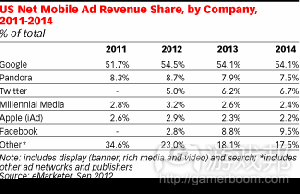
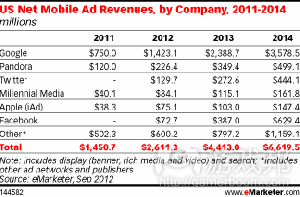
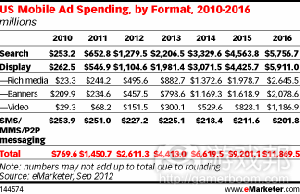
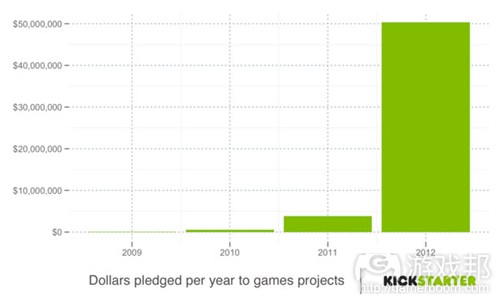


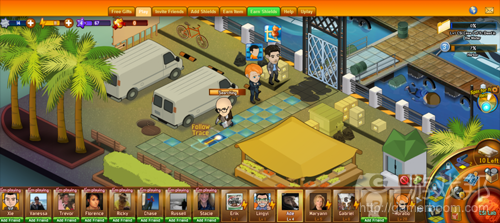














 闽公网安备35020302001549号
闽公网安备35020302001549号